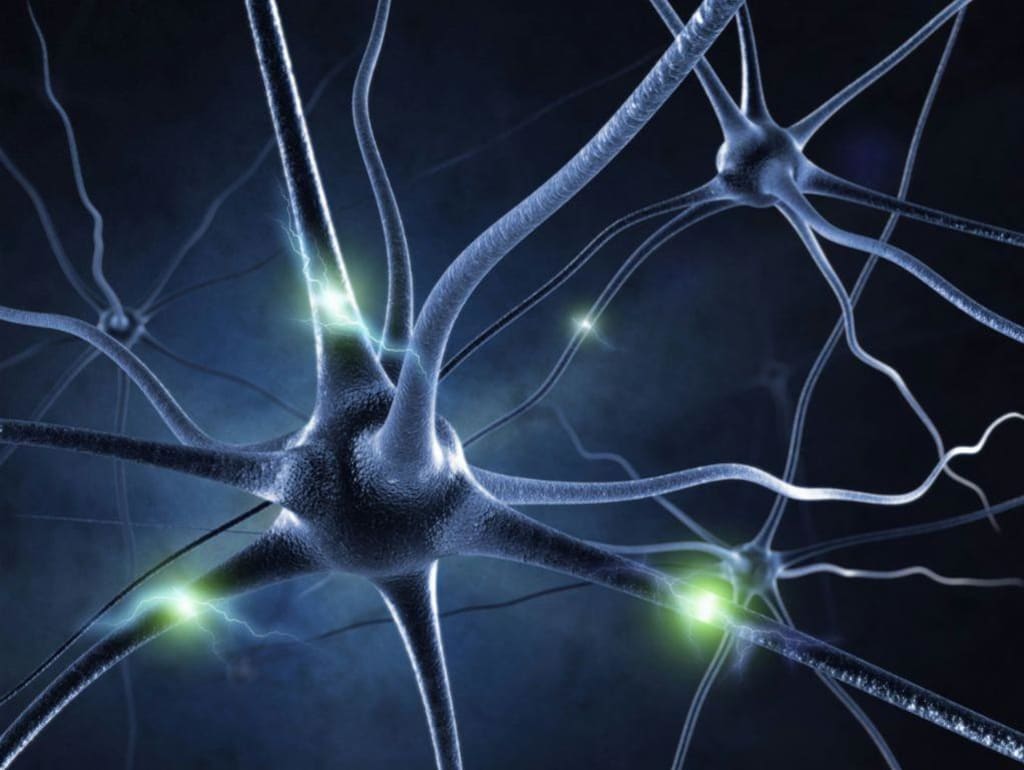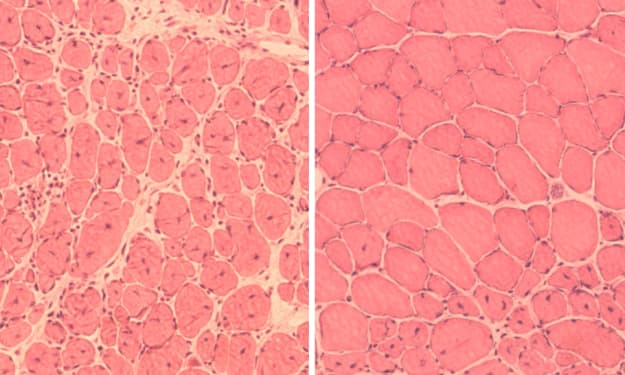The Future May Be Limitless
Nootropics: What can smart drugs do now and in the future?

You may have seen the movie Limitless. One pill turns a mediocre writer into not just a great writer, but a financial whiz and an apartment-cleaning maniac.
Obviously, as a mediocre writer, I’m interested in being a better writer -- not so much the apartment cleaner, though -- and a financial whiz. That movie -- and reading some of Timothy Ferris’s explorations of the subject -- pigued my interest in the field of nootropics. That’s the fancy name for smart drugs.
Of all the products that I reviewed on the market, Thrivous -- which makes three types of nootropics: Clarity, Serenity, and Surge -- seemed to have developed the most effective and inexpensive smart drugs on the market. (Full disclosure and realizing this is anecdotal: I’ve used Clarity for about six months and, while I’m not crunching company’s annual reports with ease, nor writing the next great American novel, I have seen an improvement in my concentration and focus.)
Besides using the product, I've also valued the company's regular information on smart drugs. I decided to ask the company’s CEO -- Lincoln Cannon -- to give us a look at what nootropics are, how they work, and maybe give us a glimpse into the future of the field.
According to Cannon, we are just at the beginning of the nootropic revolution. Will it be Limitless?
Spoiler alert... There’s a chance.
(By the way, you can check out Thrivous take on Ferris’s “nootropic” stack.)
Can you tell us what nootropics means?
Nootropics are substances that support brain function and improve cognitive performance. Sometimes people refer to them as "smart drugs". They include various pharmaceuticals, nutraceuticals, and functional foods. Healthy people use them to improve mental parameters like focus, memory, and mood. And aging people using them to maintain productive cognition. A Romanian scientist, Corneliu Giurgea, made up the word "nootropic" by combining the Greek words for "mind" and "turn". He was also the inventor of the well-known nootropic, Piracetam.
How did you get interested in nootropics?
I've been into programming and philosophy for over two decades. Both require long periods of focus. But like everyone else, I've gone through periods of time when negative mental states make my work more difficult. During those periods, I generally try to ensure I'm getting adequate sleep and regular exercise. Weight training is my favorite kind of exercise. And, years ago, I started using creatine to help with that. One day, while reviewing research related to creatine, I came across some clinical studies that indicated creatine may improve cognition. And I wondered how much of the cognitive benefit I had been experiencing from exercise might have been facilitated by creatine. So I began using creatine more often, even on days when I wasn't going to the gym. And I began looking at studies for other substances that could improve cognition. Soon, impressed by the studies and personal results, I had added rhodiola, theanine, bacopa, fish oil, and melatonin to my daily diet. And since that time I've added several others.
What does a nootropic "stack" mean?
A stack is a combination of nootropics. The combination might be mixed or otherwise formulated into a single product. Or the combination might be as simple as multiple products used simultaneously. People use nootropic stacks for at least a couple reasons. First, some nootropic effects complement each other. For example, rhodiola may improve focus, and bacopa may improve memory. Tasks that are easier with improved focus are often even easier with improved memory, and vice versa. So the combination of rhodiola and bacopa is a common stack. Second, some nootropics interact with each other to provide a better effect than either provides alone. A good example of this is the combination of caffeine and theanine. Caffeine may improve wakefulness, and theanine may improve relaxation. Together, they may provide an energized focus that neither provides alone.
What types of nootropics does your company produce -- what do they benefit -- sleep, attention, etc? Also -- related, does "stacking" relate to anything you produce?
Thrivous has developed and brought to market three products. The first is Clarity, the daily nootropic to improve focus, memory, and mood. The second is Serenity, the nightly nootropic to promote calm and sleep, and to improve next-day focus. And the third is Surge, the acute nootropic for occasional use when you need extra energy and focus. The formula for each of these products is guided by science, with each ingredient chosen based on multiple peer-reviewed, double-blind, placebo-controlled studies on humans -- not just anecdotal subjective experience and not just studies on mice. The formulas are all open source with ingredient dosages and bioactive concentrations clearly indicated -- no proprietary secrets. And the formulas all stack complementary or synergistic nootropics. For example, Clarity contains rhodiola and bacopa, and Surge contains caffeine and theanine, which work well together as I mentioned previously.
Are nootropics safe?
Nootropics are generally safe when acquired from reputable sources and used in accordance with evidence from clinical studies on humans. Unfortunately, that's not always easy. Many products on the market include ingredients for which there's little evidence for nootropic effect. Some products recommend excessive use of ingredients, like caffeine, which may result in tolerance or even dependence. Most products hide their ingredient dosages behind secret formulas, making it next to impossible for you to know what you're consuming. And even when the formulas are clearly indicated, testing of the ingredients is often inadequate to ensure their quality. So I recommend that people look for companies that openly and clearly share the science and quality behind their products.
What’s the future of nootropics as an industry? And what are some of your plans for the future?
The nootropics market is booming. People are starting to realize the potential. They're hearing from friends and colleagues who are already using nootropics. They're feeling the pressure of competition and rising expectations. And they want to take advantage of the benefits for themselves. But many people interested in nootropics are knowledge workers, like software engineers and lawyers, who are skilled at research and care about details. They want to know exactly what they're using and why. So, in the near term, I expect we're going to see a lot of pressure on the industry to become increasingly transparent about product quality.
Thrivous is already there. We're already operating in that future. As I mentioned previously, our formulas are all based on publicly-accessible clinical trials on humans, so we can offer products with the greatest potential to improve your cognition. Our formulas, and the dosages of their ingredients and bioactives, are all open source, so you can know exactly what you're using. Even our test results, from both our suppliers and manufacturers, are all public, so you can review them and gain confidence that we're working to deliver what we say we're delivering. We readily share all of this information at our website, and we encourage all of our customers to be familiar with it. For now, these practices have made Thrivous truly exceptional in the industry. Some people ask whether we're worried that others will use the information to compete with us. I'm sure some will try! And they should. That's where the industry's going. But we're not worried because our business is focused on the relationship with our customers, and that's something no one can steal. If we continue to provide a valuable service that our customers trust, they'll stick with us and refer us to others. That's what's already happening.
How close are current nootropics to the limitless pill? Even though that’s a fictional drug, do you think a massive cognitive enhancement nootropic could be developed.
Well, that depends on what we understand "close" to mean. If we mean "close in magnitude of effect" then the answer is that currently available nootropics simply don't provide anything close to the magnitude of effect portrayed in the movie. If we mean "close in time" then the answer, I think, is that we're much closer than most people realize. The rate of scientific research into nootropics is accelerating. Biotech is expanding our vision into unprecedented possibilities. And the traditional pharmaceutical and nutraceutical industries are beginning to transform. I suspect we're on the cusp of a health and longevity revolution that will make the information revolution look small in retrospect. And I expect that, in time, we'll see nootropics evolve beyond what movies have depicted toward detailed personalization and even dynamic and interactive function. In other words, I think you'll be able to take a pill that responds intelligently to the current state of your brain and enables you to make biochemical adjustments on demand, like brain-computer interfacing without surgery.
About the Creator
Matt Swayne
I'm a science and research writer with an interest in future and fringe technologies.
Reformed journalist and marketer.






Comments
There are no comments for this story
Be the first to respond and start the conversation.